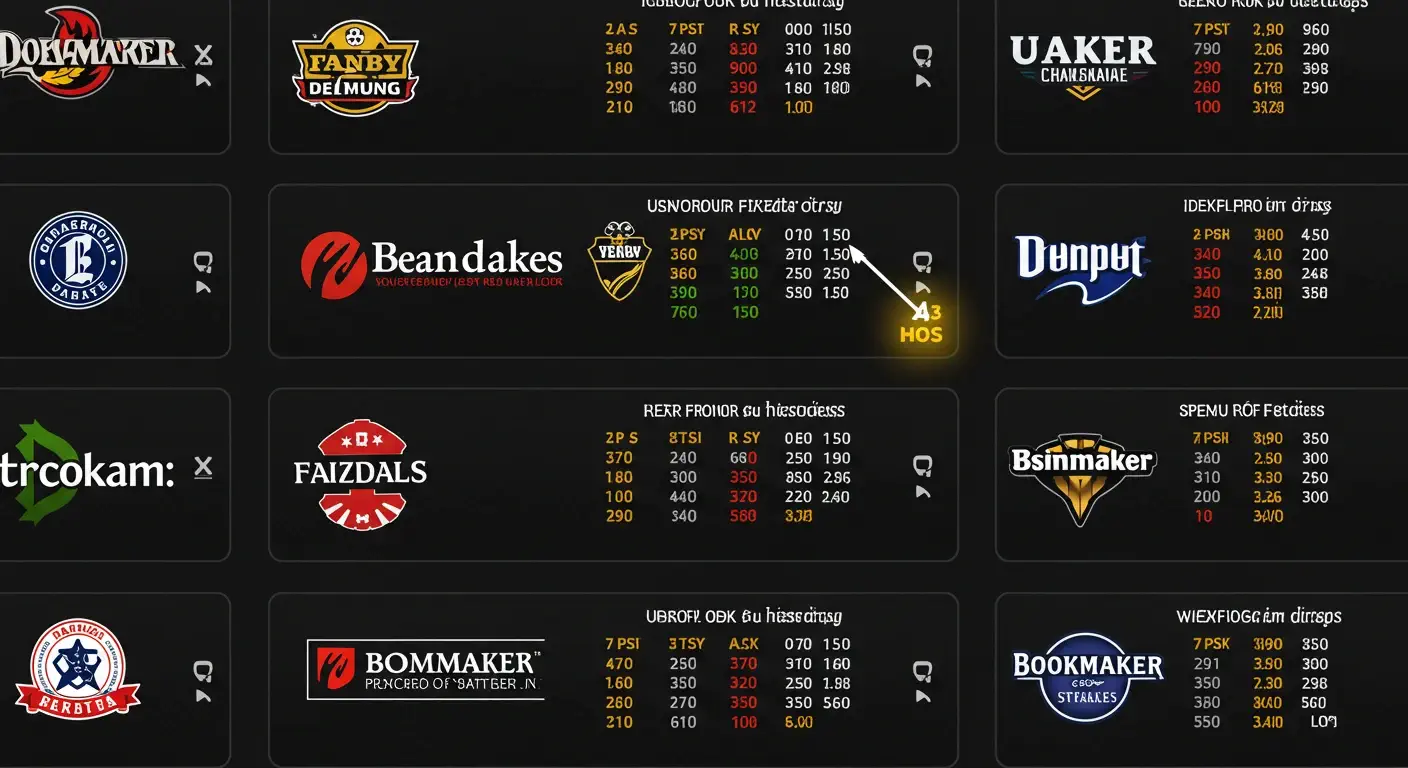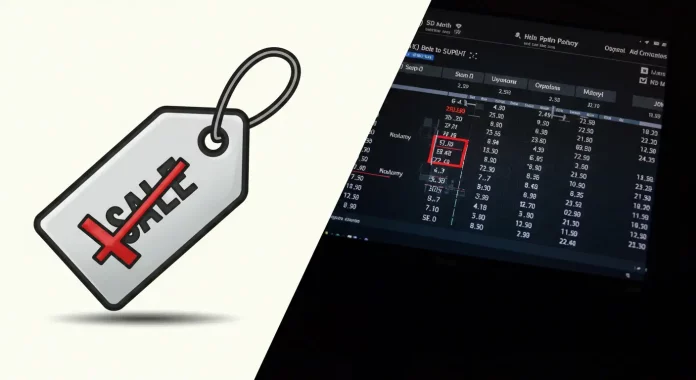Betting is massive here in Malaysia, right? The weekend buzz, checking scores, maybe putting a little money down on the EPL or even a big badminton final. It’s exciting. But here’s a question: are you just hoping to win, or are you playing it smart?
Most folks bet with their gut, or maybe because everyone else is backing Man City. That’s fine for a bit of fun. But if you’re reading this, maybe you’re looking for something more. Maybe you’ve heard whispers about “value betting” and wondered if it’s the secret sauce to actually making some profit long-term.
Well, buckle up. I’m here to break down Value Betting Explained: Finding Profitable Bets in Sports Betting in plain English. No crazy jargon, just the real deal on how you can potentially shift the odds (pun intended) slightly more in your favour. This isn’t about guaranteed wins – let’s get that straight right now – but it is about making calculated decisions, not just hopeful guesses.
So, What Exactly is Value Betting?
Think of it like shopping. You know that feeling when you find a branded shirt you love, maybe retailing for RM300, but you snag it on sale for RM150? That’s value! You got something worth more than what you paid.
Value betting is the exact same principle, just applied to sports odds.
Essentially, a value bet exists when you believe the probability (the real chance) of an outcome happening is higher than what the bookmaker’s odds suggest.
Let’s break that down:
-
Bookmakers Set Odds: They calculate the probability of Team A winning, Team B winning, or a draw. They then translate these probabilities into odds (like 2.50, 1.80, 3.10), adding their profit margin (the ‘vig’ or ‘juice’).
-
Your Job: You need to estimate the true probability of an outcome, independent of the bookie. This is the tricky, but crucial, part.
-
Spot the Difference: If your calculated probability is higher than the probability implied by the bookmaker’s odds, BINGO! You’ve potentially found a value bet.
-
Example: Let’s say you’ve done your homework for a Kedah vs JDT match. You genuinely believe Kedah has a 50% chance of winning based on form, injuries, home advantage, etc.
-
The bookmaker offers odds of 2.20 for Kedah to win.
-
Odds of 2.20 imply a probability of (1 / 2.20) * 100 = approximately 45.5%.
-
Since your estimated probability (50%) is higher than the bookie’s implied probability (45.5%), this is a value bet. You’re getting odds that are “too good” based on your assessment.
It’s about exploiting discrepancies where you think the market (the bookmaker) has underestimated a team or outcome’s chances. It’s less about predicting winners and more about identifying overpriced odds.
Why Should You Even Bother with Value Betting?
Good question. If it’s not a magic bullet for instant riches, why go through the trouble?
Well, let’s be real. Consistent profit in sports betting is tough. Really tough. Most casual bettors lose money over time because the bookmaker’s margin works against them. Value betting is one of the few strategies employed by professional and semi-professional bettors to try and gain an edge.
Here’s the appeal:
-
Long-Term Profitability Potential: While individual value bets can still lose (remember, it’s about probability, not certainty), consistently finding and placing bets where the odds are in your favour should lead to profit over a large number of bets. It’s a marathon, not a sprint.
-
Shifting from Gambling to Investing (Sort Of): Okay, it’s still gambling, let’s not kid ourselves. But value betting introduces a layer of analysis and calculation. You’re not just throwing money at random outcomes; you’re making informed decisions based on perceived value, much like an investor looks for undervalued stocks.
-
The Intellectual Challenge: For some, the thrill isn’t just the potential winnings; it’s the satisfaction of outsmarting the market. It’s about proving your analysis was sharper than the bookmaker’s algorithm. It adds a whole new dimension to watching sports.
Think about it: wouldn’t you rather place bets knowing you’ve found a mathematical edge, however small, rather than just crossing your fingers?
How Do You Actually Find These Elusive Value Bets?
Ah, the million-ringgit question! This is where the work comes in. Finding value isn’t easy, otherwise, everyone would be doing it successfully. It requires research, analysis, and a disciplined approach.
Here’s a simplified process:
Step 1: Become Your Own Odds Compiler (Estimate True Probability)
This is the most critical and subjective part. You need to determine the real chance of an outcome happening. How?
-
Deep Dive Research: Go beyond basic league tables. Look at:
-
Team Form: Recent results (last 5-6 games), home vs. away form.
-
Head-to-Head (H2H): Past results between the teams. Any patterns?
-
Injuries & Suspensions: Are key players out? This can drastically change a team’s chances.
-
Motivation & Context: Is it a cup final? A dead rubber league match? Is one team fighting relegation? Motivation matters!
-
Tactical Matchups: Does one team’s style counter the other’s?
-
Underlying Stats (Advanced): Expected goals (xG), shots on target, possession stats – these can give a clearer picture than just the scoreline.
-
-
Develop Your Model (Optional but helpful): Some serious bettors create statistical models to estimate probabilities based on historical data. This is complex but can remove emotional bias.
-
Gut Feel + Data: For most people, it’s a blend. Use the data, stats, and news, but also apply your own football knowledge and intuition. You need to arrive at a percentage probability for each outcome (Win, Draw, Loss).
Let’s be honest, this takes time and effort. You need to genuinely understand the sport and the teams involved.

Step 2: Compare Your Probability to the Bookmaker’s Odds
Once you have your probability estimate, you compare it to the odds offered by the bookmaker. Remember, we need to convert the bookie’s odds (usually decimal in Malaysia) into an implied probability.
Implied Probability = (1 / Decimal Odds) * 100
Now, the magic formula for identifying value:
Value Found If: (Your Estimated Probability % / 100) * Bookmaker’s Decimal Odds > 1.00
Let’s revisit our Kedah vs JDT example:
-
Your Estimated Probability for Kedah win: 50%
-
Bookmaker Odds for Kedah win: 2.20
-
Calculation: (50 / 100) * 2.20 = 0.50 * 2.20 = 1.10
-
Since 1.10 is greater than 1.00, this confirms it’s a value bet according to your assessment.
Here’s a simple table to illustrate:
| Scenario | Your Estimated Probability | Bookmaker Odds | Implied Probability (Bookie) | Calculation | Value? |
| Kedah Win | 50% | 2.20 | 45.5% | (0.50 * 2.20) = 1.10 | Yes |
| Draw | 30% | 3.40 | 29.4% | (0.30 * 3.40) = 1.02 | Yes |
| JDT Win | 20% | 3.00 | 33.3% | (0.20 * 3.00) = 0.60 | No |
In this hypothetical case, based on your analysis, both a Kedah win and a Draw offer value, while a JDT win does not (the odds are too short compared to your assessed probability).
Step 3: Look for Discrepancies and Place Your Bet (Wisely!)
The final step is actively seeking out these situations across different matches and bookmakers.
-
Odds Comparison is Key: Different bookmakers often have slightly different odds. Using odds comparison websites (plenty available online) helps you find the best available odds for the outcome you’ve identified as having value. Why settle for 2.10 when another bookie offers 2.20 for the same bet?
-
Bankroll Management: This is NON-NEGOTIABLE. Never bet more than you can afford to lose. Value betting involves variance – you will have losing streaks. A common strategy is flat staking (betting the same amount, e.g., 1-2% of your total bankroll, on each value bet) or proportional staking (betting a percentage of your current bankroll). Discipline is paramount.

Common Mistakes to Sidestep
Value betting sounds great in theory, but it’s easy to trip up. Here are some pitfalls I’ve seen (and maybe fallen into myself back in the day!):
-
Ignoring the Probability Part: Just betting on high odds because they look big isn’t value betting. It’s just chasing long shots. Value can exist on favourites too, if their odds are still better than their true probability.
-
Confirmation Bias: Only looking for evidence that supports the bet you want to make, rather than objectively assessing all the info.
-
Emotional Betting: Letting your heart rule your head. Betting on your favourite team (or against your rivals) unless the numbers genuinely show value. Harder than it sounds!
-
Poor Bankroll Management: Getting impatient during a losing run and increasing stakes to chase losses. This is the fastest way to bust your bankroll. Value betting requires patience.
-
Not Shopping for the Best Odds: Settling for lower odds when better ones are available elsewhere is leaving potential profit on the table.
-
Miscalculating Your Own Probabilities: This is the core challenge. Being consistently overconfident or inaccurate in your assessments means you won’t actually be finding true value. Continuous learning and refinement are key.
Frequently Asked Questions (FAQs) Integrated
Let’s tackle some common questions that pop up:
Is value betting still considered gambling?
Yes, absolutely. You are still risking money on an uncertain outcome. However, unlike purely recreational gambling (like spinning a roulette wheel where the house edge is fixed), value betting aims to identify situations where you might have a slight mathematical edge over the long run, based on your analysis. It’s calculated risk-taking, not blind punting.
Is value betting a guaranteed way to make profit?
No. Absolutely not. Let me shout this from the rooftops. Anyone promising guaranteed profits in betting is likely scamming you. Value betting is about improving your chances of long-term profitability. You will have losing days, weeks, even months. Variance is a huge factor. A team you backed on a value bet might lose to a last-minute fluke goal. It happens. The strategy relies on the value evening out over hundreds or thousands of bets.
How much time does it take to find value bets?
It depends on your approach, but finding genuine value consistently requires significant time and effort. You need to dedicate time to research, analysis, staying updated on news, and potentially comparing odds across multiple bookmakers. It’s not something you can typically do effectively in just 5 minutes before kickoff.
Can I apply value betting principles to any sport?
Yes, the core principle (probability vs. implied odds) applies universally. Whether it’s football, badminton, basketball, tennis, or even esports – if you can reasonably estimate the true probability of an outcome and compare it to the available odds, you can look for value. However, your success will depend heavily on your knowledge and ability to accurately assess probabilities within that specific sport. Stick to what you know well.
What’s the difference between value betting and arbitrage betting?
This is a great question, as they sometimes get confused.
-
Value Betting: Finding odds you believe are higher than the true probability. You accept risk on each bet, aiming for long-term profit through your edge.
-
Arbitrage Betting (‘Arbing’): Finding situations where odds across different bookmakers guarantee a profit regardless of the outcome. You bet on all possible outcomes of an event across different bookies. It’s risk-free (in theory, though execution can have pitfalls like stake limits or voided bets) but typically offers very small percentage returns per bet.
Here’s a quick comparison:
| Feature | Value Betting | Arbitrage Betting (Arbing) |
| Goal | Long-term profit via perceived edge | Guaranteed small profit per event |
| Risk | Risk on each individual bet | Theoretically risk-free (execution risks) |
| Method | Probability analysis vs. odds | Exploiting odds discrepancies across bookies |
| Profit Margin | Potentially higher per bet | Usually very small (e.g., 1-5%) |
| Bookie View | Generally tolerated (if not obvious) | Often leads to account restrictions/closures |
Value betting is about being smarter than the market on individual bets; arbitrage is about exploiting market inefficiencies across bookmakers for guaranteed (small) returns.
Value Betting in the Malaysian Context
While the principles are universal, how does this apply specifically here in Malaysia?
-
Popular Sports: The English Premier League (EPL) is hugely popular, offering tons of data and media coverage, making probability assessment potentially easier (though bookies are sharp here too). Local leagues like the Liga Super Malaysia might offer value if you have specific local knowledge that isn’t widely factored into the odds. Badminton is another passion – big tournaments might present value opportunities if you follow the players closely.
-
Access to Information: We have good internet access, meaning stats sites, news sources, and odds comparison tools are readily available.
-
Bookmaker Landscape: Be aware of the legal landscape regarding betting in Malaysia. Always use reputable and licensed operators where applicable and bet responsibly within legal boundaries.
The core strategy remains the same: do your homework, estimate probabilities accurately, compare to the odds, find the value, manage your bankroll. Whether it’s Liverpool vs. Man City or a Thomas Cup clash, the maths doesn’t change.
Wrapping It Up: The Smarter Way to Play?
So, there you have it – Value Betting Explained. It’s not a shortcut to becoming a millionaire overnight. It’s a disciplined, analytical approach to sports betting that focuses on finding odds that offer genuine value based on probability.
It requires patience, research, emotional control, and solid bankroll management. You’ll win some, you’ll lose some, but the goal is that over the long haul, by consistently taking bets where the odds are mathematically in your favour (according to your analysis), you can potentially come out ahead.
It changes betting from a pure game of chance to a game of skill, analysis, and nerve. It’s about thinking like the house, finding their potential mistakes, and trying to capitalize on them.
Ready to ditch the guesswork and start betting smarter? It takes effort, but the potential reward is moving from just being a fan who bets, to a calculated player looking for long-term profitability.
Give it a try. Start small, focus on a sport you know inside out, do your research diligently, and track your results. Who knows, you might just find that edge you’ve been looking for.

